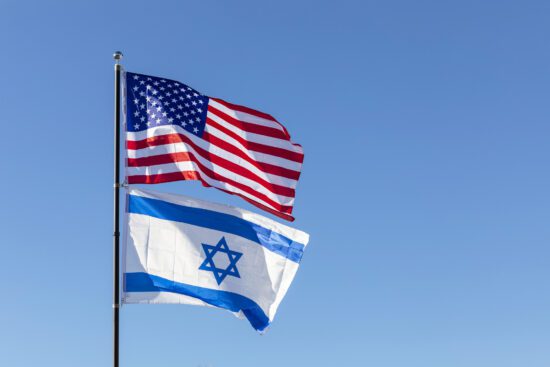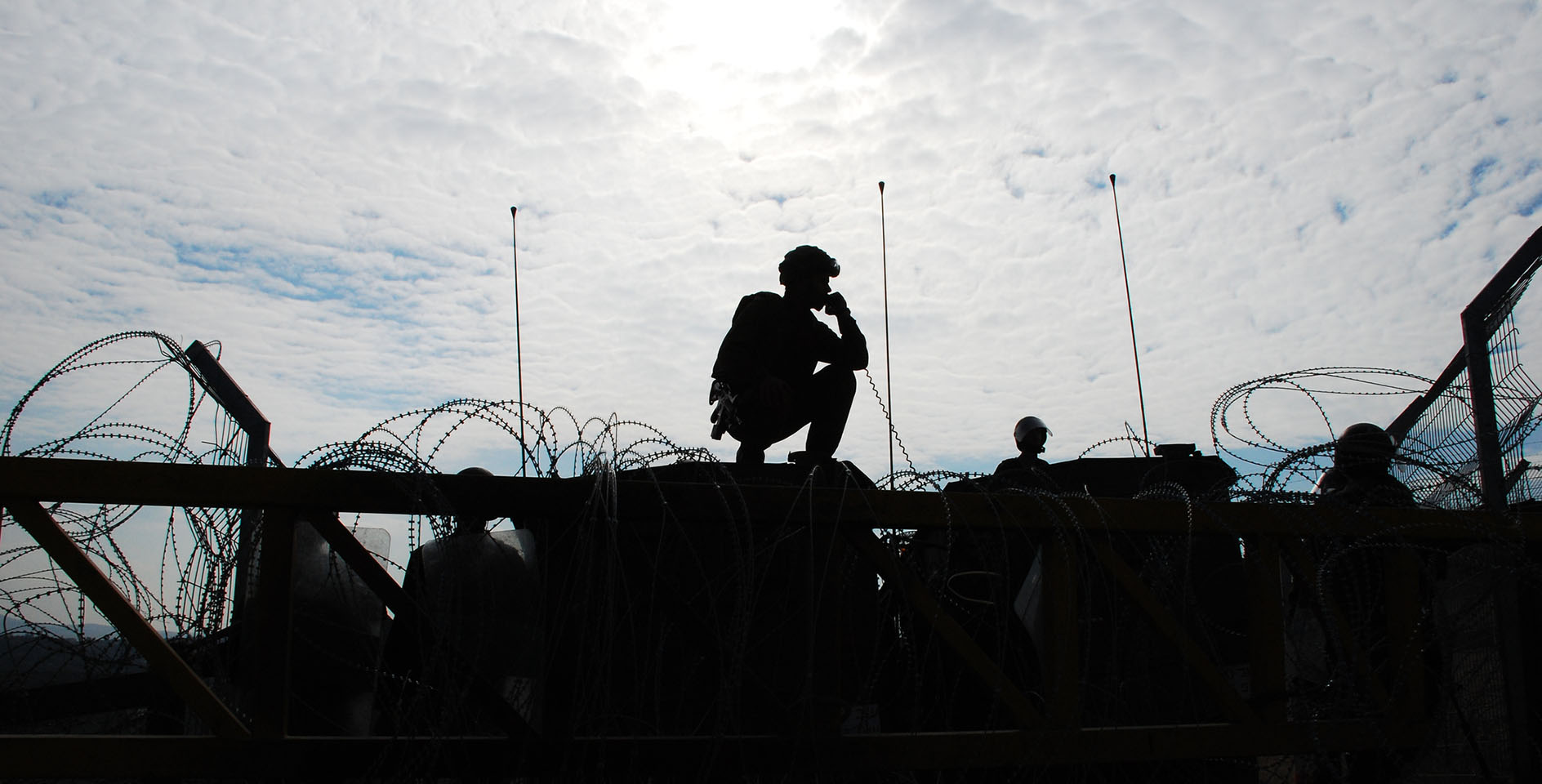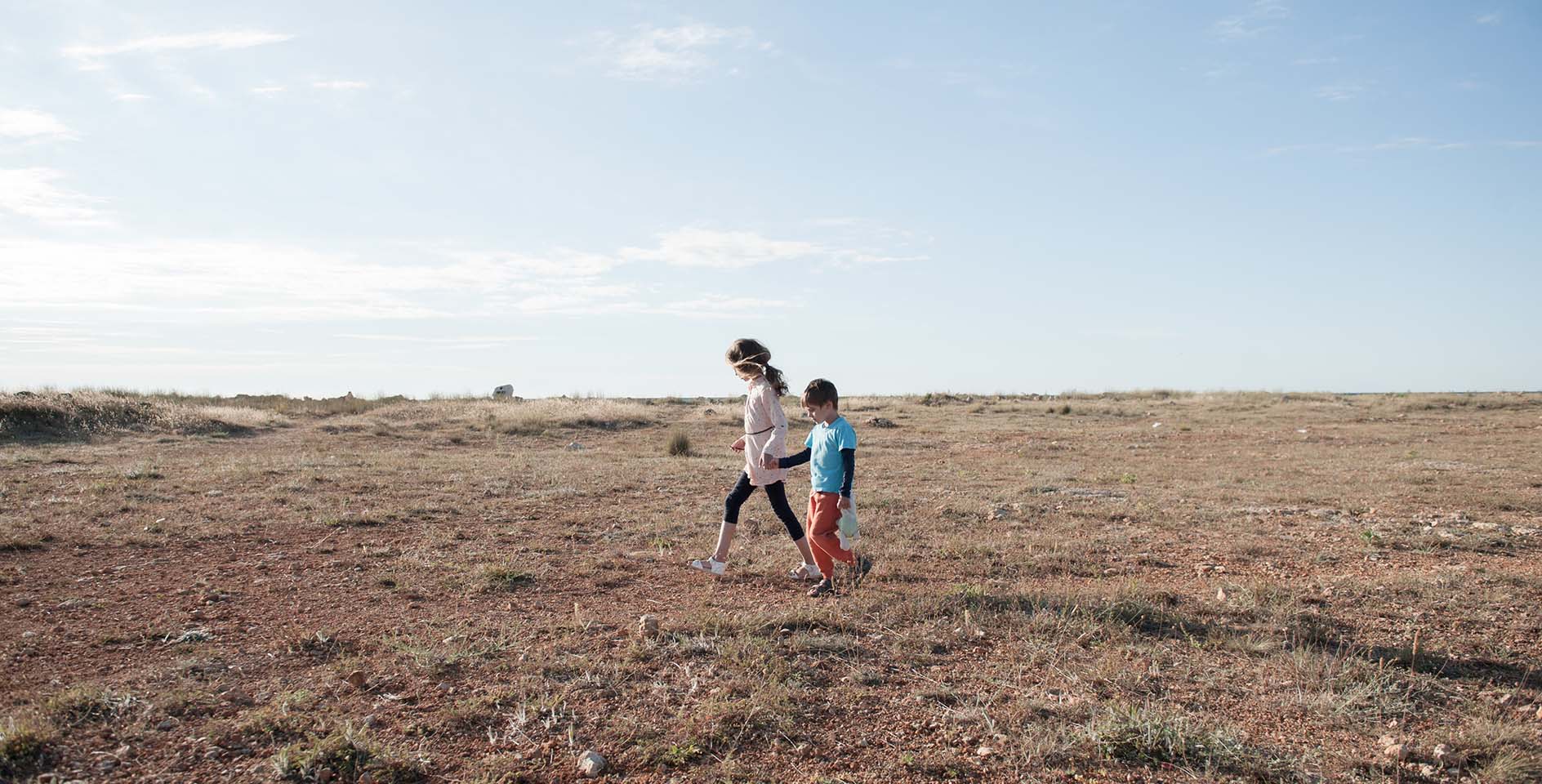A few weeks ago my wife and I joined a delegation of Southern Baptist leaders, convened by ERLC and sponsored by The Philos Project, on a trip to Israel and Palestine. Though I’ve been to this part of the world previously, this trip was unlike others. While we did visit some of the typical Christian pilgrimage sites, we also intentionally met with key leaders and stakeholders in the region.
This was an immensely formative trip for me, not only because I was able to once again walk in the places where much of the story of Christianity is centered, but because I was exposed to relationships and information to help me better think through the geopolitics of the region. I’d like to share eight things I learned on this important trip.
1. Christians should be intentional about learning as much as they can about the Middle East. Not everyone will have the opportunity to travel to Israel, but every follower of Christ should intentionally read up and learn about the people of the Middle East. It’s too easy to let the drive-by information sources of Facebook timelines and cable news segments and forwarded emails form our views of the region. We should learn and grow in our understanding of the Jewish, Muslim and Christian people who live in the Middle East for several reasons:
First, this is the region of the Bible. This is where the narrative of the Bible is centered, where our Lord lived, and where the church was built. Secondly, many of our brothers and sisters in Christ live in the Middle East, whether Messianic Jews or Arab Christians. Knowing their plight helps us better pray, speak out and care for the global church. Third, there is often conflict that happens in the Middle East that affects us in the West. We shouldn’t speak out of ignorance or biases, but we endeavor to care because it can help us better interpret the news with a biblical perspective.
2. The issues in the Palestinian/Israeli conflict are incredibly complex. This was made especially aware to us as we heard from people on all sides of this conflict. We heard from the top negotiator in Israel’s state department. We heard from a well-regarded Palestinian journalist. We heard from a Muslim academic. We heard from a Jewish religious liberty lawyer. We were educated, daily, by our wonderful Jewish guide. We had many conversations with the Palestinian believers at Bethlehem Bible college. We talked maps, seam-lines, security, war, sovereignty and culture. We should pray for peace between Israel and Palestine, but we should be aware that getting there is incredibly difficult. There are intractable differences. We should pray and work for peace for this region, but know that until Christ, our Prince of Peace consummates His Kingdom, we may never see lasting peace.
3. Israel lives every day with real security risks. Israel is a thriving, robust democracy in a region where few exist. Jewish people wake up every day with the reality that miles away are nations and people groups who wish to see them driven into the sea. That’s not hyperbole; that’s fact. I stood on the border of Israel and Lebanon. Right now, there is a relative peace, given the preoccupation with Syria. But Hezbollah has publically stated their desire to fire rockets into Israel. That’s why the hospital near the border, a hospital which treats people from all sides of the conflict, has an underground unit and has to completely fortify many of their above-ground units. The folks on the ground talked about a third Lebanon war as if it might be a reality.
Rockets are regularly fired from Gaza into Jewish towns. And most of the leaders in the Middle East talk in pejorative terms about Jews and Israel’s right to exist. In fact, when you travel to Israel, they don’t even stamp your passport. They give you a stamp so you can travel to other Arab countries without fear of reprisal. I live in Nashville, Tennessee. Imagine if, every day, an enemy as close as Knoxville threatened to lob rockets into my town or was ruled by people who wanted to see our people destroyed? Israel is not without criticism, but they face enormous challenges, having to negotiate with people who, so far, refuse to recognize their right to exist as a country and having to face an international community and media which, largely, sides against their cause.
4. The plight of the Palestinians should give us pause. There are many opinions on why Palestinians live in such dire poverty and without little hope. Some blame Israel. Some blame the Palestinian leadership. What is undeniable is how difficult it is being surrounded by a security wall and wire, led by terrorists in Hamas and a corrupt PLO, and lacking the robust democracy and markets that would enable them to thrive. It’s even more difficult for Palestinian Christians serving in Bethlehem, Gaza and the West Bank. They are doing daring, difficult ministry among a majority Muslim population. What’s more they feel abandoned by American evangelicals. Millions of Christians visit Israel every year to see the Christian pilgrimage sites but don’t stop to meet and support their brothers and sisters doing gospel work. This isn’t right. This trip has caused me to pray for and support those who are in the trenches of ministry in one of the most difficult regions of the world.
5. There are real people, made in the image of God, who live in this part of the world. My friend Mike Cosper said this about the trip: “The simplistic ‘solutions’ touted in the media make no sense once you look Israelis and Palestinians in the eye & hear their stories.” Despite the political differences between Palestinians and Israelis, on the ground, ordinary people living here want the same things people everywhere seem to want: safety, security, a warm place to sleep, food to eat, a better future for their children. And there is profound goodness being displayed in ways that never make the headlines. For instance, I heard the CEO of that hospital on Israel’s border say: “This job gives me an opportunity to take care of my enemies.” Muslims, Christians, Jews working together to save lives. We saw this kind of common decency everywhere—Jews, Muslims and Christians working together in ways that defy stereotypes.
6. The world is broken. Of course you knew that, but the problems in the Middle East bring the world’s brokenness into sharp relief. When we stood on the Golan Heights and looked out over Syria, we saw, in the distance, a puff of smoke, reminding us of the horrific war going on over there. This was just one of many moments when the enormity of the challenges, the depth of the corruption of the cosmos became almost too much to bear. Another was our tour of Yad Vashem, the Holocaust Museum in Jerusalem. Every generation is beset by evil. Every generation needs the good news of the gospel. Every generation is tempted to put it’s hope in false Messiahs. At the end of the day, while we work for peace and justice, the only hope for the world is the consummation of Christ’s Kingdom. It’s why we pray, earnestly and with despair: “Come, Lord Jesus.”
7. If you want to do gospel work, consider doing it in the Middle East. We spoke with the president of Nazareth Evangelical Seminary. I was inspired by his heart and desire to reach this part of the world with the gospel. He’s raising up young leaders to plant churches all over the Middle East. But the work is hard. Conversion comes slowly. Evangelicals are a distinct minority. These ministries are the ministries that need our support. There is a lot of excited talk in our day about church planting and reaching the nations—I wonder how many are willing to do ministry in hard soil like Israel and Palestine.
8. We should love the Middle East. I love travelling to Israel. I love being in Jerusalem. I love Tiberias and the whole Galilee region. I love Bethlehem. Perhaps you will not love this part of the world as much as I do, but all Christians should turn their gaze toward the Middle East, because God loves the people who live there. In the West, we often talk in pejorative terms about the Middle East. People joke about dropping bombs or in offensive ways about the people. We put up personal walls and fences when Arabs or Muslims come to live in the United States. This is wrong. If we want to have a genuine, Great Commission, Revelation 5,7 perspective of the world, we must confess and repent of our prejudices. We must remember that we are always talking about humans created in God’s image, and we are sometimes talking about our own brothers and sisters in Christ.










